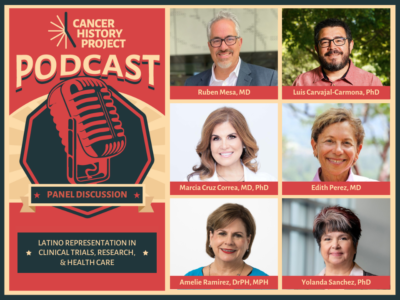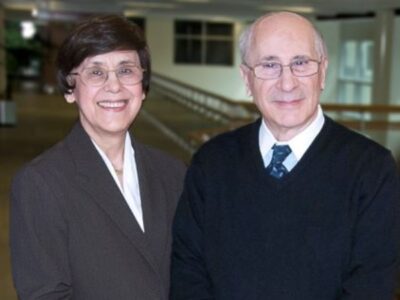Two former directors and the current director of the UChicago Medicine Comprehensive Cancer Center appeared in a special episode of the Cancer Luminaries podcast. This series was launched by UCCCC to mark its 50th year as an NCI-designated cancer center.
Hispanic and Latino people comprise nearly 20% of the U.S. population, but less than 6% of physicians nationwide identify as Hispanic.
Less Radical tells the story of surgeon-scientist Bernie Fisher, who revolutionized breast cancer treatment and transformed the way we understand cancer.
In 2023, Jeffrey S. Weber was named a Fellow of the Academy of Immuno-Oncology, an honor established by the Society for Immunotherapy of Cancer.
Jose and Irma Russo dedicated their careers to investigating breast cancer, its causes, and potential prevention measures.
City of Hope has received a $150 million gift from entrepreneurs and philanthropists A. Emmet Stephenson Jr. and his daughter Tessa Stephenson Brand to create a program focused on pancreatic cancer research.
Richard A. Rettig, the author of an authoritative history of the writing of the National Cancer Act of 1971, died on Aug. 7.
In a new online exhibition, The University of Alabama Center for the Study of Tobacco and Society examines the complicated relationship between life insurance and smoking.
Something odd turned up in one of Lawrence Phillips’s routine health screenings in 2008.
We lost Jeff Weber, an amazing medical oncologist, an impactful clinical scientist, a leading immunotherapist, and one of the prominent global experts in melanoma.















